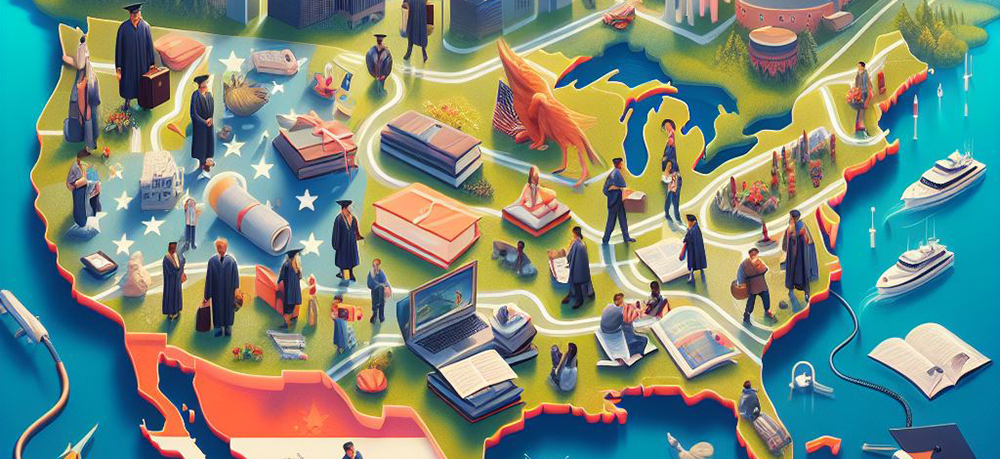Submitted by Matthew Brown, Director of Career Pathways for ELLs/IELCE

The family road trip has undergone a profound transformation since the 1980s. Back then, my parents would plan our journey with a paper map spread out on the kitchen table, determining our route and all the stops before we even hit the road. As I plan trips with my family this spring, I enter our destination into my smartphone’s GPS. Apps like Waze and Google Maps allow me to adjust our route in real-time, responding instantly to road conditions, traffic jams, or weather issues, ensuring a smoother, safer, and more efficient journey. This shift from a static, predetermined path to an adaptive, fluid adventure has revolutionized how we navigate both our travels and, metaphorically, educational strategies. Similarly, interviews in educational settings, particularly within programs like the Integrated English Literacy and Civics Education (IELCE) program, offer a dynamic and adaptive approach to understanding students’ diverse backgrounds, interests, and career aspirations, making them a more effective tool than traditional surveys.
In education, particularly within programs like IELCE, a similar evolution is needed to understand students’ diverse backgrounds, interests, and career aspirations. Traditional tools like surveys and questionnaires, akin to old paper maps, provide a broad overview but cannot adapt to students’ nuances and real-time feedback. A more dynamic and effective method is conducting individual or small group interviews, which offer an interactive environment where students can openly discuss their educational backgrounds, personal interests, career goals, and challenges.
Individual interviews act like a real-time GPS, empowering students to openly discuss their educational backgrounds, personal interests, career goals, and challenges. This setting not only fosters a sense of comfort and openness but also allows for tailored questions that adapt based on the flow of the conversation. Such adaptability enables educators to delve deeply into areas specifically relevant to each student, uncovering detailed needs and aspirations vital for customizing their educational and career preparation paths. This empowerment of students is a key aspect that makes interviews a more effective method than surveys.
Similarly, small group interviews leverage the dynamics of a GPS-enabled convoy, enhancing interaction among students with shared backgrounds or objectives. These sessions foster a strong sense of community and collaboration, a stark contrast to the static nature of traditional surveys. These discussions are guided efficiently, ensuring productivity and inclusiveness, much like a modern GPS that adjusts routes in real-time while highlighting optimal paths and potential detours.
The advantages of interviews over surveys in educational settings are manifold. They provide deep, map-like insights into a student’s experiences and motivations, which are often overlooked by more generalized survey questions. Interviews build strong, trust-based relationships between students and staff—critical for effective support—and importantly, they allow for immediate clarifications and adjustments. This ensures each session is as informative and productive as possible, demonstrating the effectiveness of interviews in educational settings.
Adopting interviews over surveys for student recruitment and program development in IELCE resembles upgrading from a paper map to a real-time, responsive GPS system. This approach significantly enhances the data quality and enriches the student experience by providing a personalized, adaptive, and engaging educational journey. Just as a seasoned traveler might keep a paper map in the glove compartment for occasional reference, surveys still hold value as a supplementary tool when needed. By embracing this tailored engagement strategy, educators are better equipped to navigate the evolving needs of learners, preparing them effectively for integration into the workforce and community, ensuring a smoother journey toward educational and career success.



